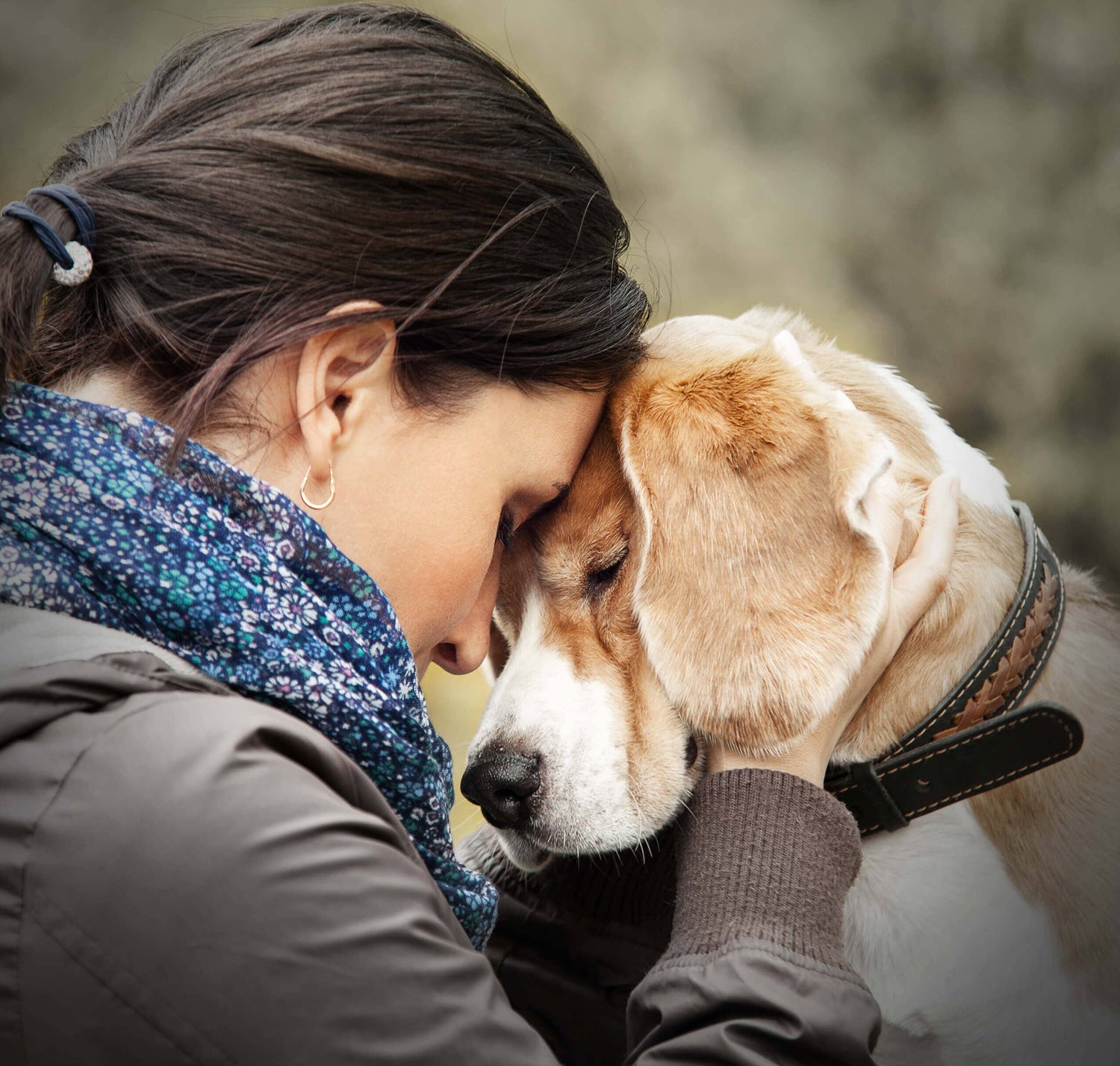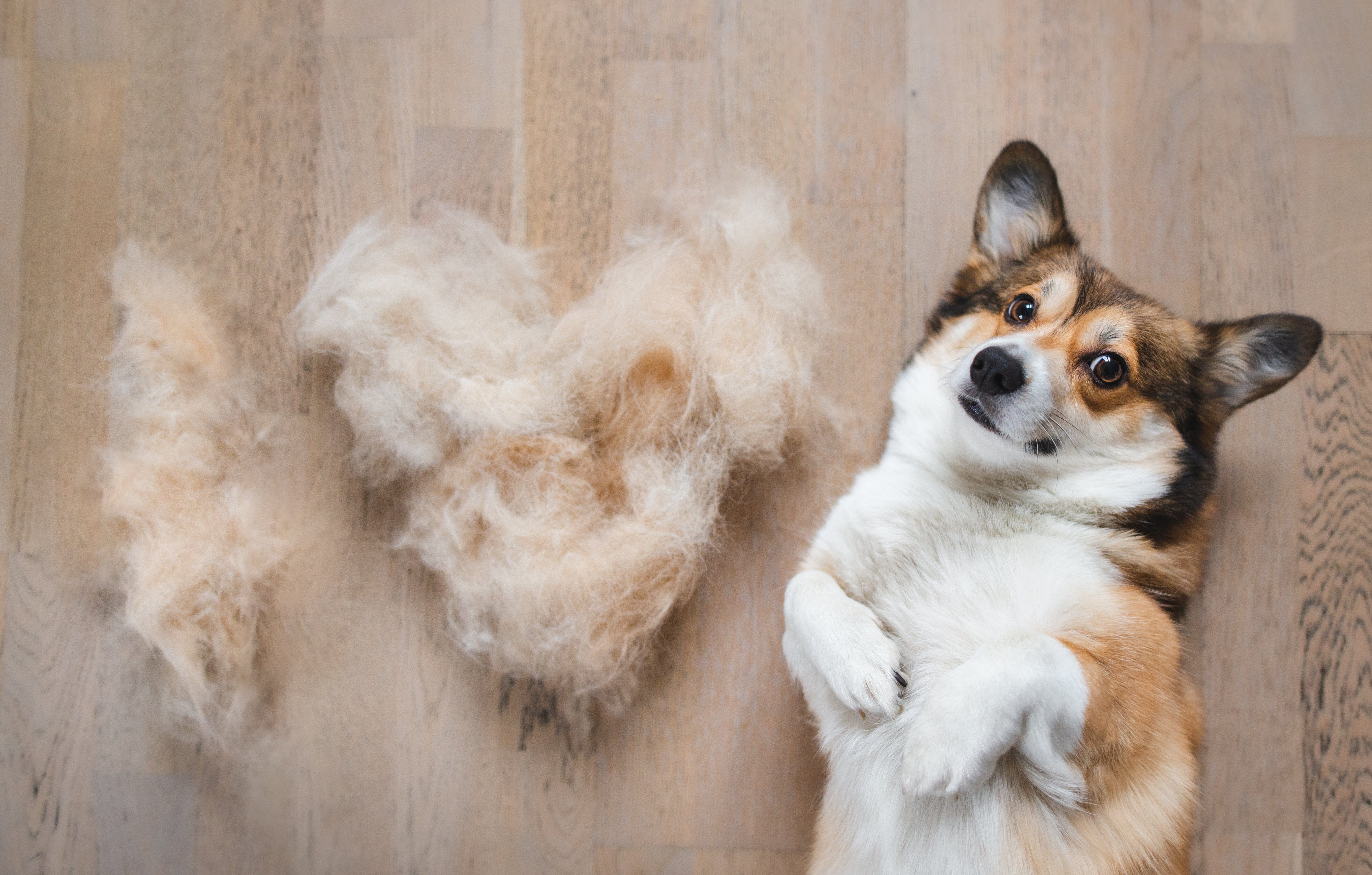Have you noticed your furry friend acting a little off? Perhaps they get super worried when you leave, or they freak out during thunderstorms. Different things are known to cause anxiety in dogs, even though we work hard to earn their trust and make them feel safe. To help our pups to live their best lives, it is good to know and understand their triggers. As these amazing animals are all wonderfully unique, it is important to know how to best love them and help them overcome their anxiety.
Table of Contents
1. Why Do Dogs Have Anxiety?
Many things can cause anxiety in dogs. There are certain breeds of dogs such as German Shepherds, Australian Shepherds, Border Collies, Jack Russell Terriers, Cavaliers, King Charles Spaniels, Bichon Frises, Toy Poodles, Labrador Retrievers, Cocker Spaniels, and German Shorthaired Pointers, that are more likely to have anxiety due to genetic predisposition. If the dog was rescued from an abusive home, they will likely have valid fears due to past trauma. As heartbreaking as this is, now that they are in a loving home, it is the chance for a new beginning, not just physically, but emotionally too.
As very social creatures, separation anxiety in dogs is common, where they may get stressed when their person leaves them. Dogs are also creatures of habit, and changes to their routine, or a new home are often things that cause anxiety in dogs. Loud noises are known to cause most dogs to run and hide. Additionally, dogs that didn’t get to know other dogs or people as puppies may be afraid of new friends.
2. How do I Know If My Dog is Feeling Anxious?
Different dogs will show different signs when they are feeling anxious. A scared dog may show some or even all of the following signs:
- Drooling and panting
- Pacing in circles or straight lines
- Attempting to escape
- Crying, whimpering, howling or barking
- Having potty accidents in the home
- Destructive Behavior Aggression towards humans or other animals
3. Are there Specific Known Triggers for Anxiety in Dogs?
Loud Noises
Loud noises are a frequently known cause of anxiety in dogs. Most dogs are afraid of fireworks and thunderstorms. In fact, over 80% of dogs are reported to be afraid of fireworks and over 65% of dogs are afraid of thunderstorms. Our July 4th Blog has helpful tips to protect your pets as that is a known day to trigger fears in dogs. Loud noises in general scare dogs, with an estimated quarter of dogs fearful of gunshots or the sound of cars backfiring, and some react just to loud noises on the TV! Cleaning up your pup’s shedding hair (LINK) with a vacuum may frighten them too.
Separation Anxiety
Separation anxiety in dogs is challenging. We work hard to help them attach to us and show them how treasured they are, so naturally they might be sad when we leave. True separation anxiety in dogs is much more dramatic, usually resulting in destruction.
Objects
Objects may cause fears in dogs too, even innocent things such as children’s toys, holiday decorations (especially those blow up lawn decorations!), or fake animals in the form of a statue.
Vet Visits
A simple visit to the vet is a stressful event for many pups. The unfamiliar sights, sounds, and smells of the vet clinic can trigger anxiety in dogs. Additionally, the handling and examination by strangers, as well as the anticipation of medical procedures, can be frightening for dogs. Moreover, past negative experiences at the vet may contribute to their stress. Overall, the combination of unfamiliarity, discomfort, and fear of the unknown can make vet visits stressful for dogs.
Stranger Danger
Children or strangers may cause anxiety in dogs for a few reasons. Sometimes, they might not be used to being around them, so they feel nervous. Loud noises or sudden movements from kids can startle them, making them feel uneasy. Dogs might also have had a bad experience with a child or stranger before, so they're scared it might happen again. Another reason could be that they're protective of their family and feel unsure about new people. It's important to give dogs time to get used to new people or kids and let them approach at their own pace. Being patient and gentle can help dogs feel more comfortable and less scared around strangers or children.
Car Rides
Car rides often are scary events that cause anxiety in dogs, so always have them secured in the car for their safety and yours. There are special harnesses and seat belts designed just for dogs. These help keep them secure and prevent them from moving around too much, which could be dangerous. Another option is a sturdy crate or carrier secured in the back seat. This gives your dog a cozy spot to relax in while also keeping them from roaming around the car.
4. How do We Help Our Dogs to Work Through Their Fears?
Helping dogs work through their fears is super important for their well-being. Anxiety in dogs should never be ignored. One way to do this is by slowly introducing them to whatever scares them in a safe and controlled environment. For example, if they're scared of loud noises like thunderstorms, you could start by playing recordings of thunder at a low volume and gradually increase it as they get more comfortable. Another helpful tip is to use positive reinforcement, like giving them treats or praise, when they show bravery in the face of their fear. This helps them associate the scary thing with good things happening.
Patience is key when helping dogs overcome their fears. It's important not to force them into situations that make them scared, as this can make things worse. Instead, go at their pace and give them lots of encouragement along the way. Building their confidence through fun activities and training exercises can also help them feel more secure and less fearful overall.
Sometimes, seeking professional help from a certified dog trainer is helpful, especially if a dog's fear is severe or interfering with their daily life. These experts can provide specialized guidance and techniques tailored to the dog's specific needs. With time, patience, and the right support, most dogs can learn to work through their fears and live happier, more confident lives.
5. Natural Remedies for Dog Anxiety
When it comes to helping our furry friends feel better, natural remedies can be a great option. One popular natural remedy for dog anxiety is lavender oil. Just a few drops of diluted lavender oil can be added to a diffuser or applied to a dog's collar to help calm their nerves. Another option is chamomile, which can be brewed into a tea and added to their water bowl. Chamomile has soothing properties that can help reduce the anxiety in dogs.
Our Pet Relax natural, non-drowsy solution is all about reassuring your dog that everything is under control. Our stress relief formula keeps your dog calm, composed and stops its stress-related urge to chomp on your stuff. Give to your dog before long car rides, trips to the vet, grooming visits, fireworks, or any stressful situation to help have a stress free day for both you and your dog. If you plan to leave your pets at home for long periods of time, giving your dog this calming remedy 30 minutes prior, or even dropping a few tablets in their water bowl will keep them reassured, preventing destructive behavior and excessive barking.
For anxiety in dogs that results in barking uncontrollably or aggression towards other dogs, cats, or even the humans in the house, we have our Peaceful Paws Dog Aggression Relief Formula. Whether it’s territory protection, food hoarding, senior dog restlessness, anxiety, fear, or other stressful situations, our remedy helps with many triggers of canine aggression or stress, ensuring a calm and peaceful dog at the dog park, on car rides or at home BestLife4Pets Peaceful Paws Dog Aggression Relief Formula naturally calms your pup's fears and reduces their dominating behavior. Beyond aggression, this formula eases dog noise sensitivity issues including thunder, fireworks, or any loud, startling noises that can hurt a dog’s ears offering a multi-faceted approach to your dog's well-being.
Alongside these natural remedies, creating a calming environment for your dog is important. This can include providing a cozy den-like space where they feel safe and secure, as well as being sure they have regular exercise and mental stimulation in their routine to help avoid unneeded stress.
Be the Calm for Your Best Friend
It's quite necessary to know that dogs may feel anxious too. Despite our efforts to earn their trust and create a safe environment, various things may cause anxiety in dogs. Having the knowledge of these triggers is empowering to help our pups live their best lives. Since each dog is special in their own way, it's important to learn how to support and care for them through their fears and worries. By doing this, we can strengthen our bond with our furry friends and ensure they're happy and healthy.



